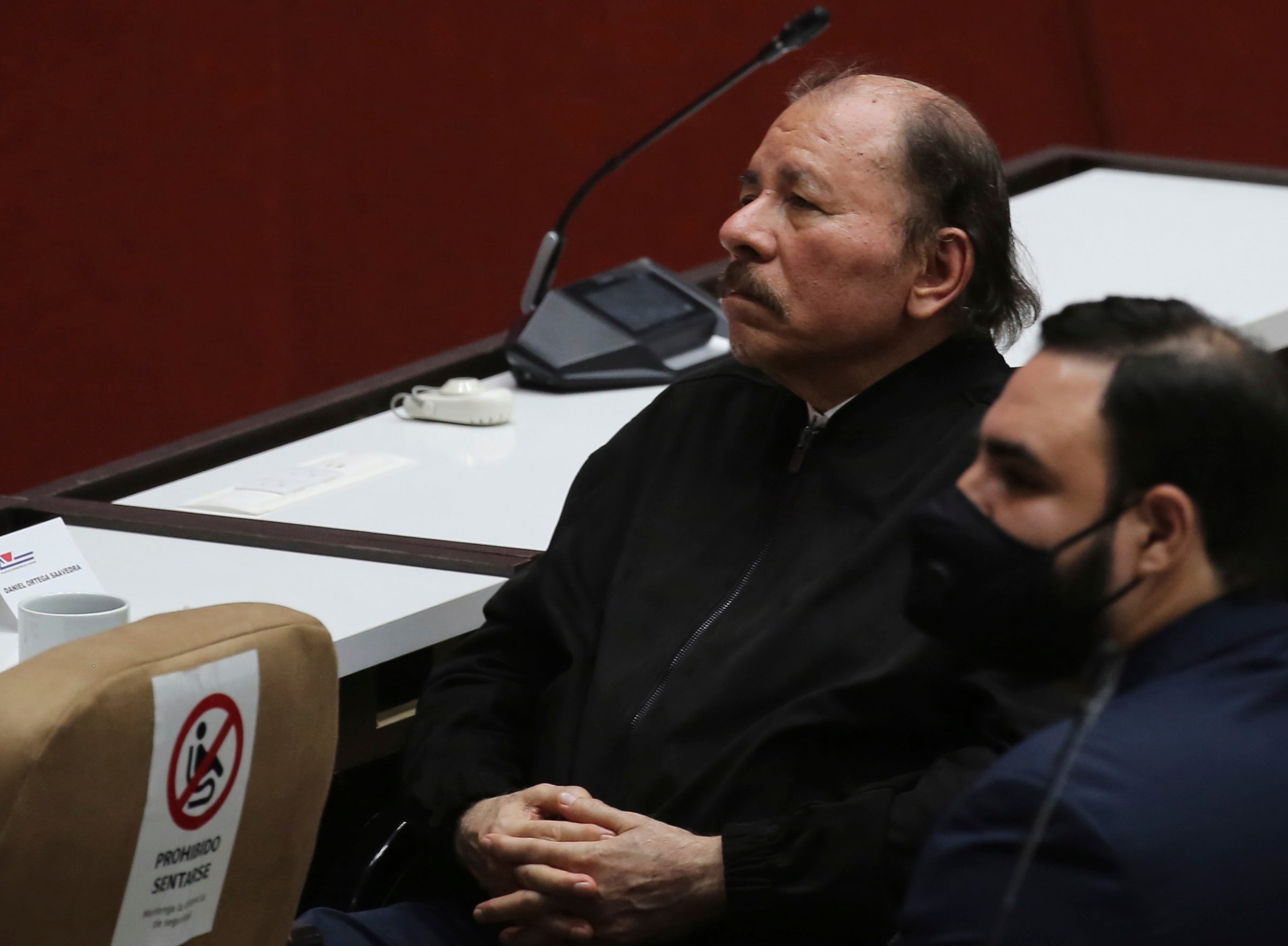Nicaragua's Ortega says US sanctions will make more migrants
Nicaraguan President Daniel Ortega says new sanctions imposed on his government by the United States this week will only serve to drive more migrants to the U.S. border

Your support helps us to tell the story
From reproductive rights to climate change to Big Tech, The Independent is on the ground when the story is developing. Whether it's investigating the financials of Elon Musk's pro-Trump PAC or producing our latest documentary, 'The A Word', which shines a light on the American women fighting for reproductive rights, we know how important it is to parse out the facts from the messaging.
At such a critical moment in US history, we need reporters on the ground. Your donation allows us to keep sending journalists to speak to both sides of the story.
The Independent is trusted by Americans across the entire political spectrum. And unlike many other quality news outlets, we choose not to lock Americans out of our reporting and analysis with paywalls. We believe quality journalism should be available to everyone, paid for by those who can afford it.
Your support makes all the difference.Nicaraguan President Daniel Ortega said Thursday that new sanctions imposed on his government by the United States this week would only serve to drive more migrants to the U.S. border.
Speaking at an anniversary ceremony for the country Interior Ministry, Ortega said the United States has imposed more sanctions around the globe than any other country, “causing the greatest harm” and “then complaining about immigrants.”
They were the first comments by the Nicaraguan leader since the Biden administration announced new sanctions Monday.
Together with the Treasury Department’s simultaneous sanctioning of Nicaragua’s General Directorate of Mines, the executive order signed by President Joe Biden all but makes it illegal for Americans to do business with Nicaragua’s gold industry.
It is the first time the U.S. has identified a specific sector of Nicaragua's economy as potentially off-limits and can be expanded in the future to include other industries believed to fill the government’s coffers.
Previous U.S. sanctions against Nicaragua targeted members of Ortega’s family and inner circle. There had been concern that broader sanctions affecting Nicaragua’s economy could drive more migration to the U. S. border.
Ortega has stepped up repression since clearing the field of potential opposition candidates ahead of his re-election to a fourth consecutive term last November. In addition to jailing dozens of opposition figures, the government has closed more than 1,000 civil society groups, shuttered independent media outlets and most recently jailed a Roman Catholic bishop and other clergy.
Since widespread social protests broke out in April 2018, most fleeing Nicaraguans headed to neighboring Costa Rica. But with that country's overwhelmed asylum system and struggling economy more have instead migrated to the United States. For the fiscal year that ended in September, U.S. border agents encountered Nicaraguans nearly 164,000 times at the southwest border — more than triple the level for the previous year.
“They keep imposing sanctions and more immigrants will go to the United States,” Ortega said. “As much as they want to close the doors, there’s no door they can close to the immigrants.”